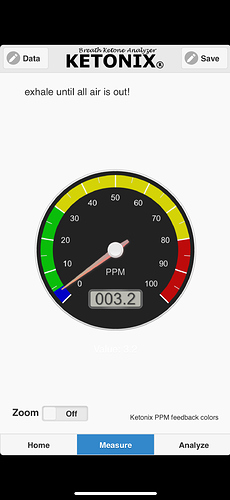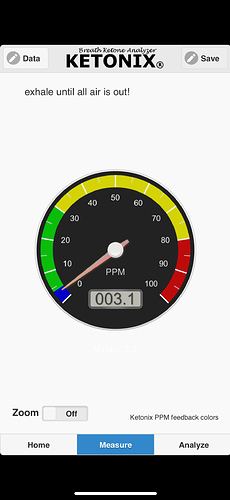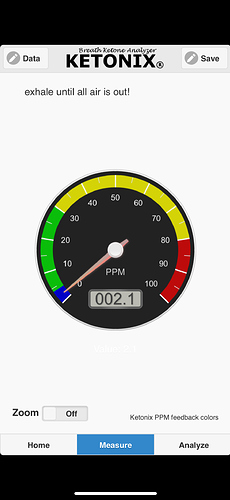So I got a ketonix Bluetooth in almost a week ago. I’ve been using it at least 4 times per day since then and I really have yet to get a result that seems particularly informative. During the day I pretty much fast aside from some coffee with butter or other fat in it. All day I’ll blow extremely low numbers, somewhere between 1 and 4ppm from about 8am to 5pm. If this were my only point of reference I would be assuming that I wasn’t in ketosis all day, but I’ll also be taking a few blood tests throughout the day which all show me to be in nutritional ketosis.
Now I get that the two tests are measuring different chemicals that may not always have any relationship with each other, but isn’t the whole point of the ketonix that it can tell you that you’re in ketosis withou having resort to blood tests? If it’s telling me that I’m not in ketosis when I am, it isn’t doing it’s job. I would assume that maybe I got a bad unit that doesn’t sense acetone very well, but the thing goes nuts every evening when I use it after eating. At those times I’ll blow between 20 and 60ppm, yet my blood monitor tests will be mostly unchanged.
I guess my question is what gives? Why does the thing only register nutritional ketosis after a meal? Why can’t I use it to at least verify that I’m in ketosis at any other time? After all, that last bit would seem to be its main use. It doesn’t have to be accurate for me to be satisfied. It just has to give a positive result when I’m in ketosis and a negative result when I’m not. Right now all it tells me is that I just ate, and I don’t know what bearing that has on anything.




